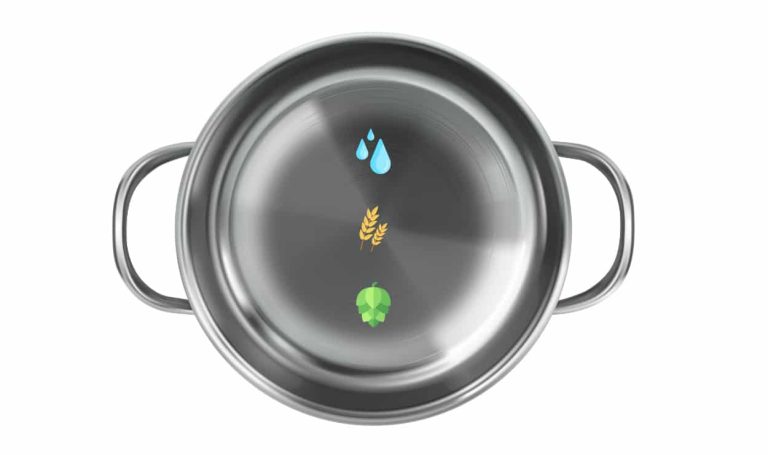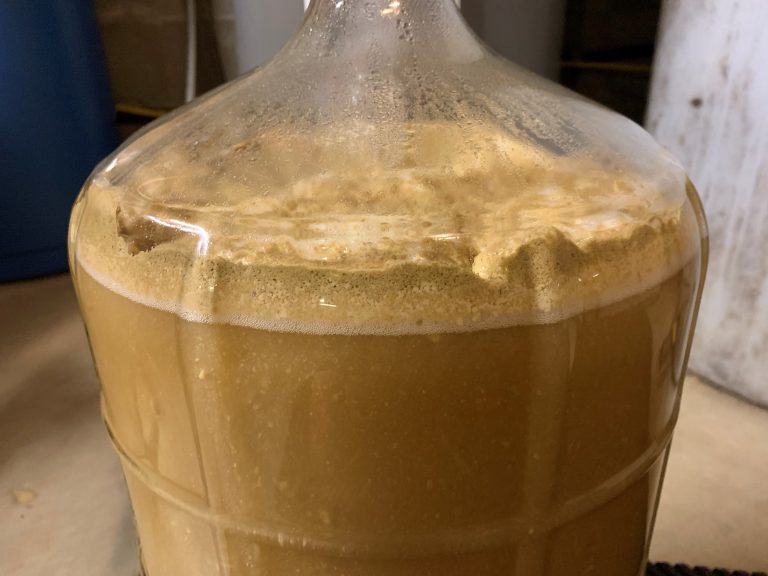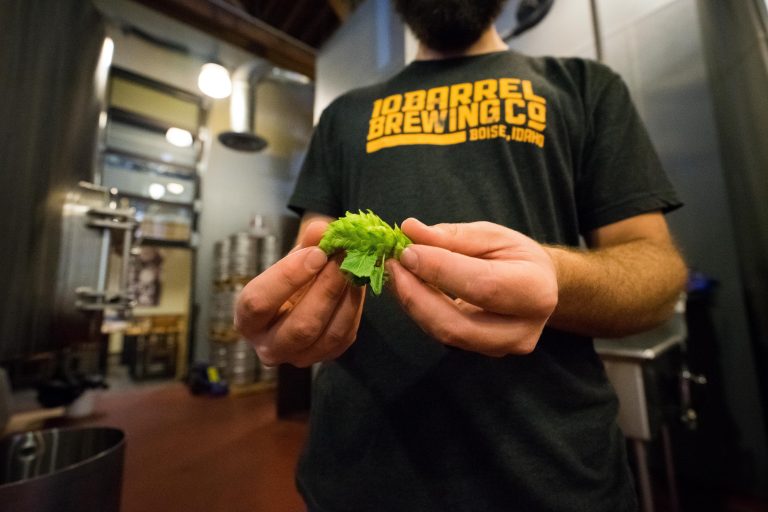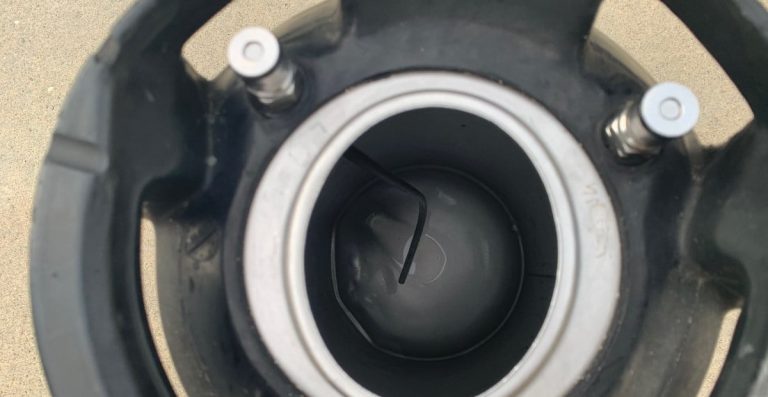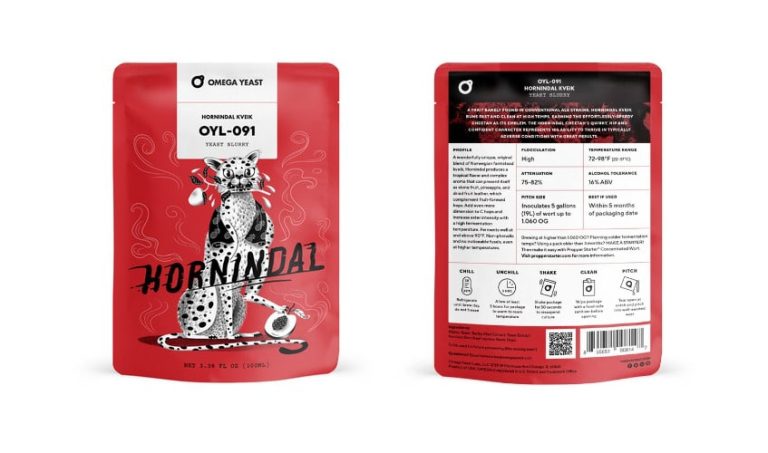Should You Buy a Grain Mill?
I wanted to do the math to see if getting my own quality grain mill would be worthwhile, and how long it would take for me to earn my money back on one.
Right now, I order all my grain pre-crushed by either Northern Brewer, AIH or Atlantic Brew Supply. Northern Brewer charges an extra $0.25 per pound for the crushing of grains on a pound-by-pound basis. MoreBeer charges an extra $0.20 per pound to crush. AIH and Atlantic Brew Supply (ABS) don’t anything for crushing, with ABS taking it even a step further by offering double crushing, which is perfect for my BIAB setup.
Using Bulk Grains
Seeing that half the online stores don’t charge for crushing – and likely your LHBS doesn’t either – it becomes clear that the return on investment (ROI) will be earned from the difference of buying your grains in bulk.
To be honest, if you aren’t buying your grains in bulk, you probably don’t need a grain crusher. A bag of grain is 55 pounds, which is enough for about five 5-gallon batches. If your brewing schedule doesn’t account for that much beer, then I think your answer to the title question is “NO”.
Other Bulk Grain Considerations
Taking that idea even further, you likely will only be buying your base malt in bulk, since you likely don’t need Chocolate or Vienna malts in 55 pound (25 kg) sacks. For those of you using flaked grains in your recipes, there isn’t even a need to crush them, so a grain mill won’t help here either.
Outside of the cost factor, unmilled grains are considered to last longer. This means that you can buy a 55 pound bag of grain and keep it for a year (or two if you stretch it) in storage without worry that it was going to spoil.
Milled grains have commonly been considered unstable enough that they should be used immediately after being crushed. However, myself and other homebrewers have used milled grains that were stored for months in a cool-and-dry place without problems, so take that first piece of advice with a grain of salt.
The Cost of Grain
We are going to perform the ROI calculations on a bulk 55 pound bag of the cheapest domestic 2-row pale malt available at each establishment. It is important to note that most online stores that offer free shipping on orders over a certain amount exclude bulk bags of grain. MoreBeer!, AIH and ABS all forced extra shipping on my shipment when I added the bag to the shopping cart.
| Store | 55 lb. Sack | Shipping | Total Cost |
|---|---|---|---|
| Northern Brewer | $69.99 | Free | $69.99 |
| MoreBeer! | $39.99 | $28.39 | $68.39 |
| Adventures in Homebrewing | $59.99 | $28.94 | $88.93 |
| Atlantic Brew Supply | $39.50 | $34.10 | $73.60 |
| Your Local Homebrew Store | $45 | Free | $45 |
What I did find however is that if you buy your grain by the pound, free or discounted shipping does come into play, just as long as you meet their shopping cart total requirements. If you were to buy the grain by the pound, it would look like this:
| Store | 55 – 1lb. Buys | Shipping | Total Cost | Extra over Bulk |
|---|---|---|---|---|
| Northern Brewer | $84.70 | Free | $84.70 | 21% ($15) |
| MoreBeer! | $81.95 | $49.35 | $131.30 | 92% ($63) |
| Adventures in Homebrewing | $99.00 | Free | $99.00 | 11% ($10) |
| Atlantic Brew Supply | $67.65 | $8(x2) = $16 | $83.65 | 14% ($10) |
| Your Local Homebrew Store | $55 | Free | $55 | 22% ($10) |
You may be thinking to yourself “No one in their right mind would ever do this“, but you may be surprised.
If you buy your grain batch by batch, this is exactly what you are doing. Ignoring MoreBeer (since it is an insane outlier), the table above shows us that buying grain by the pound, you pay an extra $12 per 55 pounds of grain if you buy it individually, or about $2.40 per batch of beer assuming 55lbs of grain gets you 5 batches.
You pay an average of $2.40 extra per 5 gallons of homebrew by not buying your grain in bulk.
The Northern Brewer one pound price was for unmilled grain, which was $0.20 cheaper than milled, which saved us an additional $11 in this scenario.
Grain Mills
There are a lot of different grain crushing mills on the market today. The Crop Duster on the low-end starts at around $80 while at the other end of the price spectrum, the Monster Mill clocks in at around $194 when bought directly off their website. There are a handful of others like Crankenstein and The Barley Crusher that fall somewhere in between the previous two.
Let’s assume you don’t care about the stability of pre-crushed grains and are simply making the “do-I-or-don’t-I” decision on buying a grain crusher based simply on your return on investment (ROI).
We will also save the debate over which grain mill is best for another article, but as you can see from the math we did below, it will take quite a while to earn your money back from buying even the cheapest grain crusher.
| Grain Crusher | Cost | Batches Needed for 100% ROI |
|---|---|---|
| Crop Duster | $80 | $80 / $2.40 = 34 Batches |
| The Barley Crusher | $128 | $128 / $2.40 = 54 Batches |
| Crankenstien w/Hopper | $138 | $138 / $2.40 = 58 Batches |
| Monster Mill | $194 | $194 / $2.40 = 80 Batches |
Discussion
This goes without saying, but these are rough estimates done on the cheapest 2-row available at each store. Your mileage may vary especially if you do larger than 5 gallon batches, use a lot of specialty grains that need crushing or if you brew more often than I do.
These grain crushers don’t last forever either. The consensus is that the ball bearings eventually give out or something breaks where you need to send it in for repairs or simply buy a new one. On the plus side, The Barley Crusher has a lifetime warranty, so you should be able to use this thing for all your brews going forward.
If it was up to me, I’d probably go with The Barley Crusher since it appears to be made of quality materials and I always hate buying the cheapest option available for fear it will fall apart. Having to brew 54 batches (about 2-3 years of brewing) to earn my money back on it seems a bit excessive and not really worth it in my opinion.
However, as discussed above, there are other benefits to owning a grain mill. If gaining the ability to crush your grain to the exact specifications you need or if you want to freshly crush your grains for each batch, then a grain mill may be exactly the piece of equipment you need. For me, I’ll probably just stick with buying periodic pre-crushed grains online or from my LHBS.

